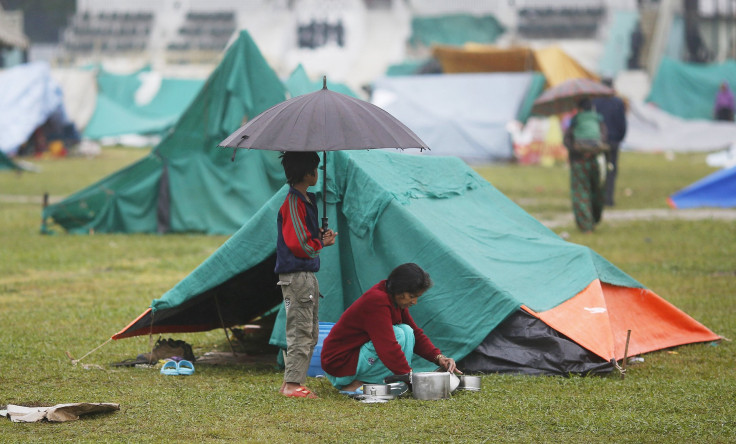Nepal Earthquake Update: UN Launches $415M Emergency Appeal As Death Toll Continues To Rise

The United Nations has launched a $415 million emergency appeal to provide vital aid to the earthquake-affected regions in Nepal as the death toll from Saturday’s earthquake continues to rise. According to latest official estimates, nearly 5,500 people are believed to have died -- a number that could reach up to 10,000 in coming days.
“Funding is needed immediately to continue the relief operations,” Jamie McGoldrick, the U.N. resident and humanitarian coordinator for Nepal, said in a statement released Wednesday. “Although I am heartened and encouraged by the progress of the response to date, efforts need to be maintained and stepped up to ensure vital assistance reaches all the affected, especially those in the remote areas.”
According to U.N. estimates, nearly 8 million people across 39 districts have been affected by the earthquake, which is one of the deadliest to hit Nepal in over 80 years.
Although Nepali authorities, aided by the Indian army, have been successful in rescuing several people trapped in remote areas of the country, including a group of trekkers stranded in the Gorkha Valley, the entry of food assistance and relief material into the country has been slowed by multiple bottlenecks.
Nepal’s sole international airport, located in Kathmandu, is extremely congested as it is not equipped to handle the influx of aid planes. In addition, the country’s road network has also been severely damaged by the quake.
“Everywhere we hear the government is ... doing help work in Kathmandu. Good, but what about us?,” a resident of the village of Dumla, located near the base of Annapurna Mountain range, said, according to media reports. “We are far, so we don't get anything? I want the government to fix my home, feed my child, but nothing is happening.”
Government officials acknowledged that there were several shortfalls in the way relief operations have been managed. “We have still not been able to properly manage to provide relief,” Minendra Rijal, Nepal's minister of information and communications, reportedly said on Wednesday. “Life is returning to normal, but it will be some time to be completely normal.”
Rains are also hampering search and rescue operations in some of the worst-hit areas of the impoverished nation.
“The rain is adding to the problems. Nature seems to be against us,” Rameshwor Dandal, chief of the disaster management center at Nepal's home ministry, told Reuters. “There may not be any more survivors.”
© Copyright IBTimes 2024. All rights reserved.












